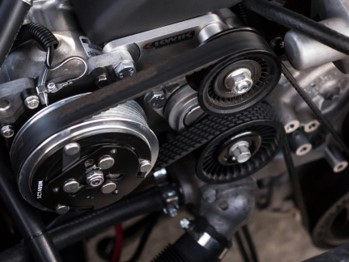Why Remanufactured Parts are Far from Being “Second Best”

When it comes to vehicle repairs, the term “second-hand” might evoke images of worn-out components salvaged from scrapyards. However, in the world of automotive remanufacturing, these “second-hand” parts are anything but inferior. Let’s debunk the myths and explore why remanufactured parts deserve a place of honour in your vehicle.
Quality Assurance: The Remanufacturing Process
Remanufactured parts undergo a rigorous transformation. Here’s how it works:
- Core Collection: Cores (used parts) are collected from various sources such as old vehicles, dealerships, and recycling centres; these cores serve as the foundation for remanufacturing.
- Disassembly: Skilled technicians disassemble the cores, inspecting each component meticulously; any parts that are too damaged or worn are discarded.
- Cleaning and Refurbishment: The remaining components are thoroughly cleaned; surface imperfections are addressed, and worn surfaces are restored.
- Replacement of Critical Components: Key elements, such as bearings, seals, and gaskets, are replaced with brand-new parts; this ensures optimal performance and longevity.
- Precision Machining: Critical surfaces, such as cylinder heads, crankshafts, and camshafts, are machined to OE specifications; precision matters.
- Assembly: The remanufactured components are meticulously reassembled; tolerances are tight, and quality control is stringent.
- Testing: This is where remanufactured parts prove their worth. They undergo rigorous testing; often more stringent than new parts. From leak tests to performance evaluations, nothing is left to chance.
Environmental Impact: A Greener Choice
- Reduced Waste: Remanufacturing contributes to the circular economy; by reusing existing components, we reduce the need for raw materials.
- Energy Savings: Producing new parts consumes significant energy. Remanufacturing, however, requires less energy because the base material already exists. It’s like giving a tired component a second chance at life.
- Lower Carbon Footprint: Remanufactured parts result in fewer greenhouse gas emissions. By extending the life of existing components, we reduce the need for resource-intensive manufacturing processes.
Cost-Effectiveness: Saving you money
- Affordable Pricing: Remanufactured parts cost significantly less than new ones. Whether you’re a budget-conscious motorist or a fleet manager, the savings can be substantial.
- Warranty Coverage: Many remanufacturers offer warranties comparable to those for new parts; you get peace of mind without breaking the bank.
- Availability: Certain rare or discontinued parts can be hard to find as new; remanufacturing bridges this gap, ensuring that even vintage vehicles can stay on the road.
Conclusion: Choose Wisely, Drive Responsibly
The next time you hear “second-hand,” think beyond scrapyards. Remanufactured parts are the unsung heroes of sustainable driving. They are not “second best”; they are the smart choice for your vehicle, your wallet, and our planet. So, when your mechanic recommends a remanufactured part, embrace it. You are not settling for less; you are making a positive difference.
Back

